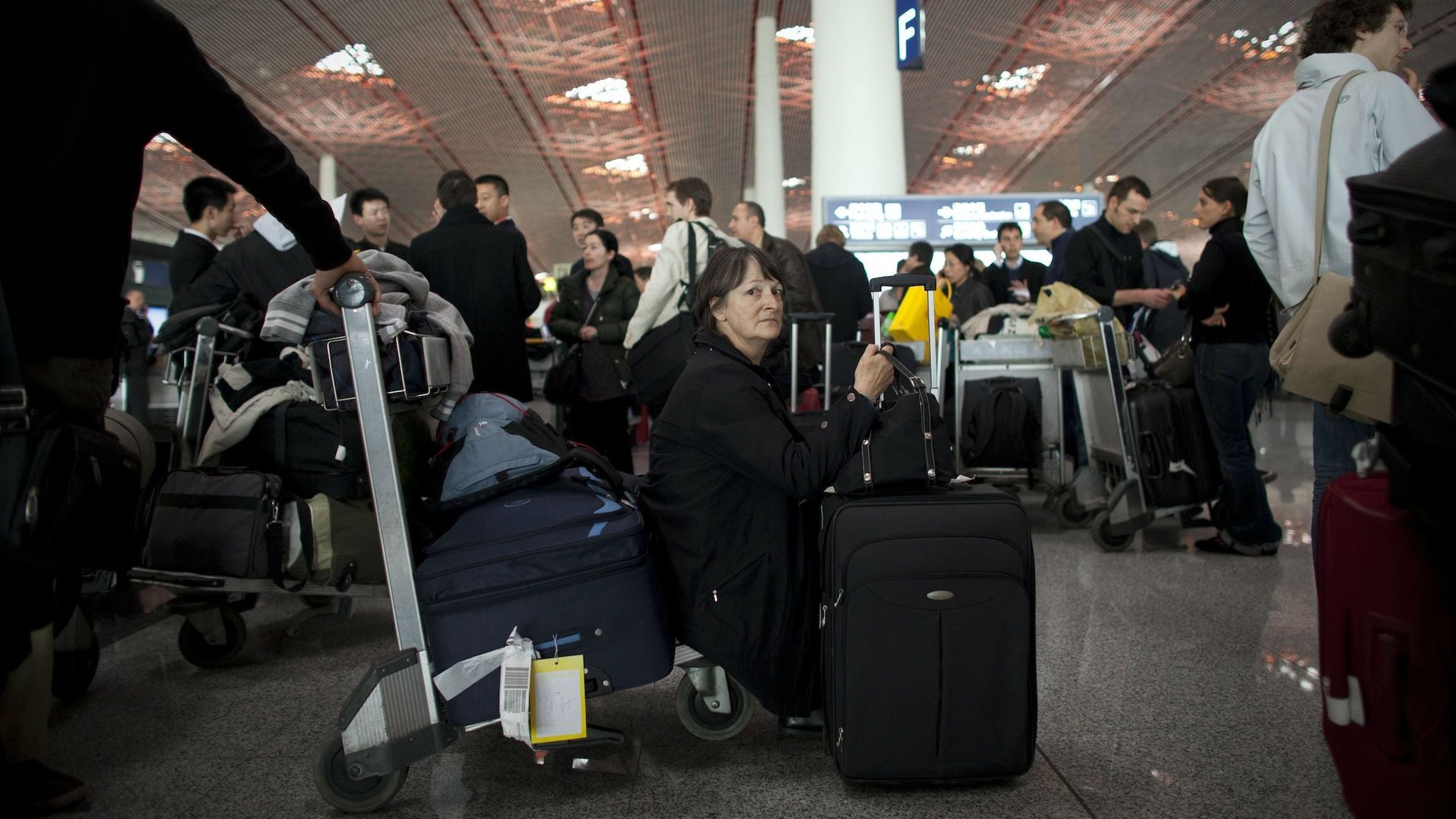The military isn’t giving up China’s airspace, no matter how many flight delays it causes
Airline passengers in China have been cursing the People’s Liberation Army, which controls most of the country’s airspace, for mass delays and cancellations this week, causing chaos for commercial air traffic in Shanghai and other busy commercial hubs. Around 200 flights were canceled or delayed because the airspace was being used by ”other users,” according to aviation authorities. A dozen airports in east and central China have been ordered to reduce scheduled flights by 25% because of army drills that will last through Aug. 15.


Airline passengers in China have been cursing the People’s Liberation Army, which controls most of the country’s airspace, for mass delays and cancellations this week, causing chaos for commercial air traffic in Shanghai and other busy commercial hubs. Around 200 flights were canceled or delayed because the airspace was being used by ”other users,” according to aviation authorities. A dozen airports in east and central China have been ordered to reduce scheduled flights by 25% because of army drills that will last through Aug. 15.
The military’s response? To complain that civilians and local governments have been encroaching on their airports for years, and have a “weak understanding” of national defense.
Ma Jifei, head of the PLA’s general staff headquarters, told the state-run Xinhua news agency (link in Chinese) that more than 10 military airports have had to shut down because overly tall buildings in nearby urban centers, as well as accidents caused by people playing with model airplanes and feeding birds. “There are local governments…that didn’t plan well how economic development and national defense would relate.”
The comments don’t bode well for civilian travelers as well as the companies and investors in China’s fast-growing commercial aviation sector hoping to see the PLA loosen its hold over the country’s skies. The military only grudgingly shares the 80% of the country’s airspace (link in Chinese) that it controls. It also requires many commercial carriers to clear their flight plans with PLA authorities ahead of time.
As a result, space is limited and pilots are are often denied permission to take detours around bad weather. Flights are often delayed or canceled because of military exercises announced on short notice. Last year, airports in Shanghai and Beijing ranked last among 35 international airports in punctuality, with only 18% of flights out of Beijing International and 28% of flights from Shanghai Pudong leaving on time. Airport riots by frustrated passengers are becoming common.
There have been some signs that things are changing. Last November, the PLA and the civil aviation administration announced that smaller commercial flights no longer have get the PLA’s approval of their flight plans. In May, the military said it would open 25 flight paths for civilian flights in northern China, including Beijing, to use for avoiding bad weather, which officials promised would decrease the number of flights that have to be canceled.
But the air travel chaos China will see over the next month is evidence that the PLA still has final say. Today Ma also announced a new rule to go into effect next month that makes any “activities that will affect flight safety and efficiency of the navigation facilities in the airport” punishable under China’s public security laws.
Cathy Sizhao Yi contributed additional reporting.